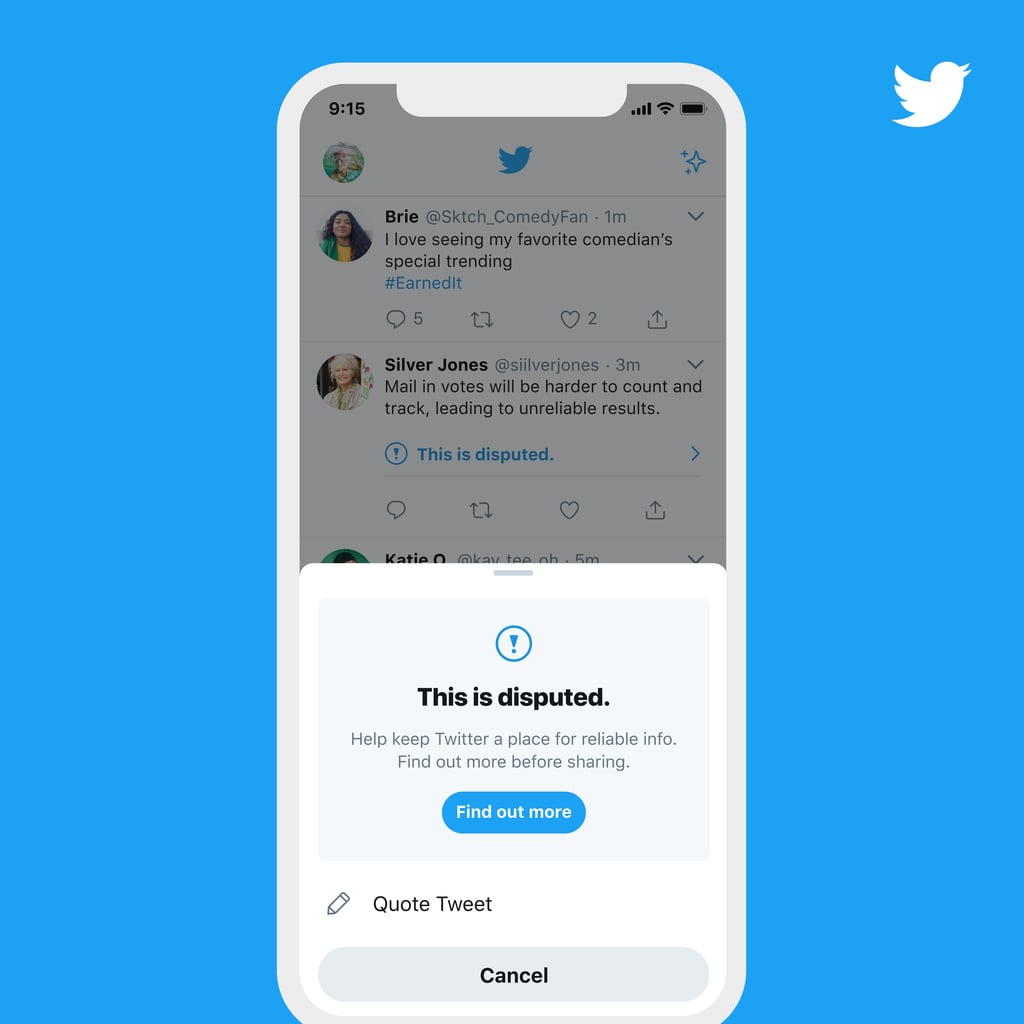Twitter Updates Integrity Policy for 2020 Election Retweets
Twitter Is Changing Its Rules to Prevent the Spread of Misinformation Ahead of the Election

Ahead of the 2020 presidential election, Twitter has announced an update to its Civic Integrity Policy to prevent the spread of misinformation as it pertains to voting and election results. "As we continue to protect the integrity of #Election2020 conversation on Twitter, we're announcing new, significant updates today that will bring more context and encourage thoughtful consideration before Tweeting," the social media platform tweeted on Oct. 9. "Tweets which include premature claims of a victory in an election will be labeled and direct people to our official US Election page in Explore. Tweets that encourage others to interfere with the election process or the results will be removed."
The new labelling policy, which goes into effect next week, is being put in place to encourage users to consider why they're amplifying specific tweets and add their own commentary before sharing unverified information. "Starting next week, when people attempt to Retweet a Tweet with a misleading information label, they will see a prompt directing them to credible information about the topic before they can amplify it." These labels will primarily target tweets that include false or misleading information about how to participate in an election, "information intended to undermine public confidence in an election," and information intended to intimidate or dissuade people from participating in an election or other civic process. This policy also applies to presidential candidates.
In monitoring election-related content, the Twitter team will keep an eye out for three broad categories of content:
- Misleading Information — statements or assertions that have been confirmed to be false or misleading by subject-matter experts, such as public health authorities.
- Disputed Claims — statements or assertions in which the accuracy, truthfulness, or credibility of the claim is contested or unknown.
- Unverified Claims — information (which could be true or false) that is unconfirmed at the time it is shared.
In addition to labelling rumours and unverified claims for users in the US, Twitter will also prevent tweets that have been "followed by" and "liked by" accounts you don't follow from showing up in your timeline. Also, the site will only highlight trending content in your "For You" tab if that content includes additional context. "Our goal is to continue to provide access to critical information and encourage participation in the conversation during #Election2020," the platform tweeted.
For more information on what counts as a violation and how to report these posts, read Twitter's full Civic Integrity Policy.




